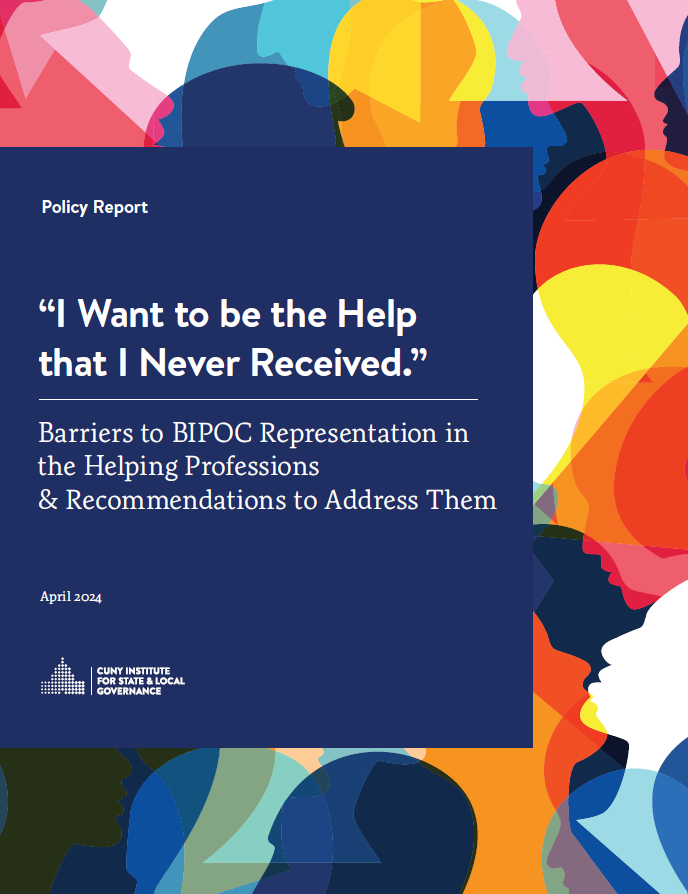Institute Intelligence, July 2025: Human Services’ Role in Summer Job Growth, Welcoming a New Senior Fellow to ISLG
By Carla Sinclair, Senior Communications Associate, and Alisa Orlowsky, Communications Associate
It wouldn't be July in New York without sudden downpours, sweltering temps, and a hazy mix of humidity and sunshine. But even in the thick of it, we’re finding ways to stay refreshed here at ISLG. First up: we're excited to share that our website's team page has been revitalized! Now you can get to know the ISLG team a little better through dedicated bio pages and quick access to our team members' blog posts. Take a look here and meet the people behind our work.
This month, we also welcomed ISLG's newest Senior Fellow, chatted with a chief of staff about how the role helps their communities run, deep-dived into human services job growth and wages, and more. See below for a recap on the latest.
Advancing Justice
Welcoming new Senior Fellow Jeremy Travis to CUNY ISLG
We're excited to welcome veteran criminal justice leader Jeremy Travis to ISLG as a Senior Fellow. With decades of experience spanning government, academia, philanthropy, and the nonprofit sector, Jeremy brings a deep understanding of the systems that shape justice policy and reform.
“His extensive experience has given him an unmatched understanding of what makes our criminal justice and other systems work, and his insights will be invaluable as we grow our work and explore new partnerships both locally and nationally."
- Michael Jacobson, ISLG Executive Director
Learn more about Jeremy—whose prior leadership roles include President of John Jay College of Criminal Justice and President of Criminal Justice at Arnold Ventures— on our blog.
Optimizing Government & Institutions
Q&A with NYC Council Chief of Staff Samori Touré
For legislative Chiefs of Staff, handling day-to-day operations requires staying focused on the week ahead while simultaneously keeping the big picture in mind to best support their elected official. As Legislative Chief of Staff for Council Member Sandy Nurse, Kriegel Fellow Samori Touré can vouch no two days are the same.
We spoke with Samori about his path to public service, why CUNY is an important NYC institution, and what it means to connect with a broader network of public service leaders through the Kriegel Fellowship on our blog.
Human Services Lead Job Growth—But Wages Threaten the Sector’s Long-Term Strength
Summer job reports from the US Bureau of Labor Statistics show that human services and state and local government are among the fastest-hiring sectors. But many of these jobs lag when it comes to wage growth.
Earlier this year, CUNY ISLG researchers examined this booming intersection of government and human services in New York State. With demand increasing for human services—stemming from a combination of pandemic-era socioeconomic disruptions, long-simmering affordability crises, aging populations, and more—the reality is that wages are falling far below the cost of living in New York State.
Carla Sinclair, Stephanie Rosoff, Alison Diéguez, and Cecilia Low-Weiner break down key highlights of their analysis of New York State wage growth in these sectors, with a close eye on the role of policymakers and other leaders to create a pipeline of quality, sustainable public services.
Promoting Opportunity
It’s Minority Mental Health Awareness Month: Understanding the Underrepresentation of BIPOC Staff in the Mental Health Fields
Black, Indigenous, and People of Color (BIPOC) communities are underrepresented in the mental health workforce. Despite growing demand for culturally responsive care, BIPOC practitioners face numerous barriers at every stage, from unequal access to education and licensure to workplace discrimination and burnout in the field.
This Minority Mental Health Awareness Month, dig into our research that explores these barriers, examining both the challenges to entering the field and the obstacles BIPOC practitioners encounter while working and advancing their careers.
These inequities don’t just limit opportunities for practitioners; they also have serious consequences for the people these fields are supposed to serve, from limited access to culturally responsive care to widening disparities in mental health care outcomes.
Confronting these structural barriers means investing in pipeline programs, policy reforms, and workplace practices that don’t just diversify the field, but make mental health care better for everyone.
ICYMI: ISLG Senior Fellow Eric Brettschneider and NYU Silver Associate Dean Linda Lausell-Bryant break down why nonprofit executives, mental health leaders, policymakers, educators need to reexamine their practices to make this field more accessible and sustainable for all people, but especially people of color. Read it in City Limits.
Stay in touch - sign up for our newsletter to get all the latest updates.




